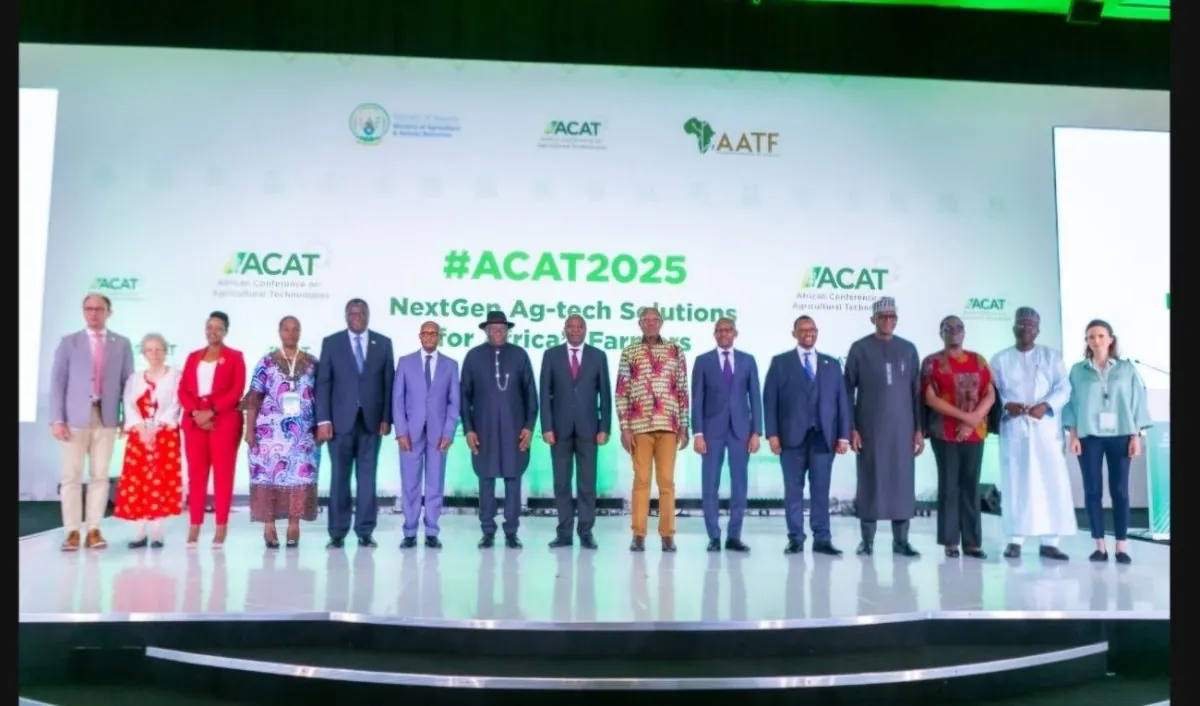Key Takeaways
- African leaders emphasize the need for increased investment in agricultural technology to enhance food security at ACAT 2025 in Kigali.
- Collaboration among governments, the private sector, and farmers is crucial for agricultural transformation.
- Commitments were made to improve access to AgTech and prioritize smallholder farmers in policy decisions.
Investment in Agricultural Technology
African leaders and stakeholders have called for enhanced investment and the swift implementation of agricultural technologies to address food security challenges during the ongoing African Conference on Agricultural Technology (ACAT) 2025 in Kigali, Rwanda.
In a keynote address, Rwanda’s Prime Minister, Dr. Édouard Ngirente, highlighted the necessity of building supportive ecosystems with effective policies, robust infrastructure, and improved access to financing. Ngirente underscored the importance of centering farmers’ perspectives in developing solutions.
Former Nigerian President Dr. Goodluck Ebele Jonathan stressed the importance of collaborative efforts, declaring that no single entity could spearhead agricultural transformation in Africa alone. He urged governments, the private sector, civil society, and farmers to join forces. Jonathan also called for strengthening biosafety regulations and aligning agricultural budgets to encourage investment.
Panel discussions featured topics such as ‘Financing AgTech Solutions: Aligning Capital, Risk, and Innovation.’ Experts noted the need for private sector engagement, youth involvement, and mechanisms to mitigate risks in supporting innovative agricultural technologies. Hannington Namara, Managing Director of Equity Bank Rwanda, announced the bank’s commitment to allocate at least 30% of its loan portfolio to agriculture, encouraging other financial organizations to follow suit.
Another significant session, titled ‘Charting a Collaborative Roadmap for Quality Partnerships,’ focused on aligning stakeholder objectives and fostering collaboration among researchers, communicators, and practitioners. Conference participants emphasized that effective partnerships depend on trust, aligned visions, and shared responsibilities.
During a ministerial dialogue, representatives from six nations, including Rwanda, Ghana, and Nigeria, pledged to improve access to agricultural technologies and emphasize gender inclusion and research investment in agriculture. Dr. Mark Cyubahiro Bagabe, Rwanda’s Minister of Agriculture, reiterated the need for smallholder farmers to be prioritized in policy making and innovation processes.
Dr. Canisius Kanangire, Executive Director of the African Agricultural Technology Foundation, stressed the urgent need for action, remarking, “It is not the seed in the field that feeds the nation; it is the seed in the soil.”
Delegates at ACAT 2025 united in their goal to foster an agriculture sector that is resilient, inclusive, and driven by technology to ensure food security for future generations.
The content above is a summary. For more details, see the source article.















